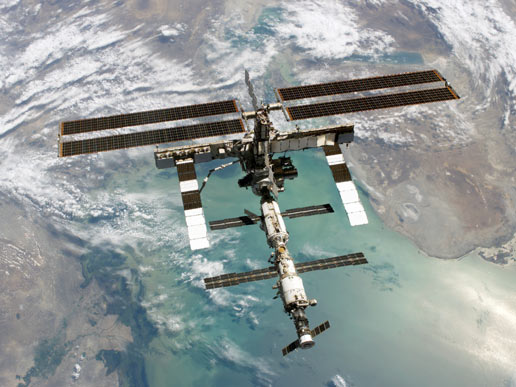FROM: NASA
WASHINGTON -- NASA's Space Technology Program has selected five technologies that could revolutionize America's space capabilities. In March, NASA issued a call for proposal focused on sudden and unexpected innovations that hold a potential for providing a "game-changing" impact on the efficiency and effectiveness of the agency's space capabilities. NASA has selected the following proposals for funding:
--"Representing and Exploiting Cumulative Experience with Objects for Autonomous Manipulation," University of Massachusetts, Amherst. This technology could improve autonomous robotic operations using artificial intelligence during deep space missions. --"Lightweight High Performance Acoustic Suppression Technology Development," NASA's Jet Propulsion Laboratory, Pasadena, Calif. This technology could suppress acoustic environments during launch. By reducing vibrations by acoustic suppression during launch, the amount of prelaunch vibration stress testing for onboard instruments also could be reduced.
--"Fast Light Optical Gyroscopes for Precision Inertial Navigation," NASA's Marshall Space Flight Center, Huntsville, Ala. This technology could enhance navigation capabilities for spacecraft by improving the performance of existing gyroscopes by a factor of 1,000. --"EHD-Based Variable Conductance Thermal Interface Material," The Boeing Company, El Segundo, Calif. The development of this thermal material could provide better heat management for spacecraft. --"Membrane Enabled Reverse Lung," Oceaneering Space Systems, Houston. This technology could reduce the number of life support systems needed for astronauts.
"NASA's Space Technology Program is enabling our future in space by investing in revolutionary and game-changing technologies that could open new doors for how we live, work and investigate space," said Michael Gazarik, director of the program at NASA Headquarters in Washington. "We are confident these selected technologies, with their highly qualified research teams, will enable great new opportunities for the next chapter in NASA's innovation story."
The selected proposals take steps toward addressing critical technological barriers for advancing exploration and science missions, while also lowering the cost of other government and commercial space activities. Projects were selected through independent review of technical merit, alignment with NASA's Space Technology Roadmap priorities and the technology objectives identified by the National Research Council in its review of these roadmaps.
Awards range from $125,000 to $1.8 million, with a total NASA investment of approximately $6 million through 2015. NASA's Game Changing Development Program, located at the agency's Langley Research Center in Hampton, Va., is responsible for the management of these awards.
